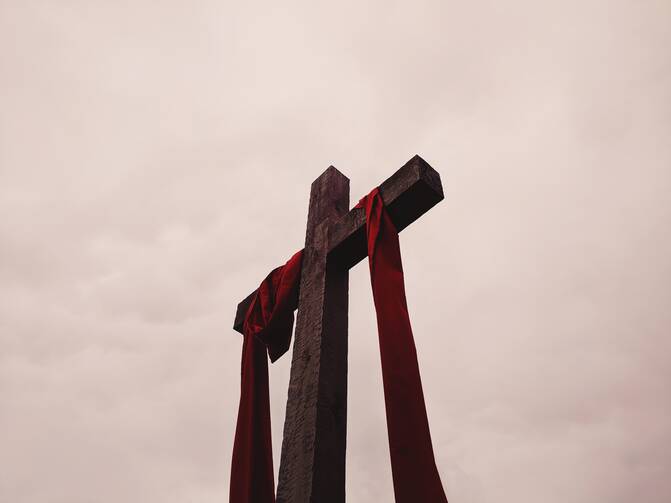A Reflection for the Memorial of Saints Andrew Kim Tae-gŏn, Priest, and Paul Chŏng Ha-sang, and Companions, Martyrs
Find today’s readings here.
Today we celebrate the pair known as the “Korean Martyrs”—Sts. Andrew Kim Tae-gŏn and Paul Chŏng Ha-sang—who were canonized under Pope John Paul II during his apostolic visit to Seoul in 1984, along with more than 100 Korean martyrs.
St. Paul Chŏng Ha-sang was a married lay catechist. In addition to teaching other Koreans about the faith, he traveled to China to convince the Paris Foreign Missionary Society to send priests to Korea. He was martyred in 1839.
St. Andrew Kim Tae-gŏn was raised by Catholic parents, who were among the first converts to the faith in the 1800s. Ordained in 1845, he spent much of his priestly ministry secretly evangelizing, helping to spread Catholicism across Korea. He died by beheading in 1846. He was only 25.
I didn’t know too much about either St. Paul or St. Andrew—or any of the Asian martyrs we honor today—so it was interesting to learn more about them. As I read about the lives they lived and the price they paid for their faith, I began to wonder about my own capacity for fearless evangelization.
I’d like to think that my faith would be strong enough to conquer my fear, but no one has ever threatened to behead me for going to Mass.
In America today, it’s relatively easy to be a Catholic. Yes, there are sincere and long-held frustrations about the Church’s positions on certain subjects and very deep hurt surrounding the Church’s handling of the sex abuse crisis, but I can (usually) share my faith with others without fear of physical harm or retribution, and most Americans have never questioned Catholicism’s legitimacy as a major religion.
If I had lived in the early 1800s in Asia, I wonder what role I would have had in bringing Catholicism to a country with a strong social hierarchy and deep roots in shamanism, Buddhism and Confucianism. What price would I be willing to pay in order to spread the Good News to others? Would my trust in God and his goodness be strong enough to guide me through the challenges and fears about my own well-being? Would I even recognize the gifts and graces of our faith without the benefit of a long family history of Catholic practice?
To be honest, I don’t feel totally confident in my answers to these questions. I’d like to think that my faith would be strong enough to conquer my fear, but no one has ever threatened to behead me for going to Mass. Reflecting on the lives and courageous choices of St. Paul Chŏng Ha-sang and St. Andrew Kim Tae-gŏn provides a valuable occasion to consider the depth of our own trust in God and what we are willing to sacrifice to follow Christ’s example within our own communities. Of course, the context in which we are able to live as Catholics today is much different from 19th-century Asia, but there are still a myriad of opportunities where we can follow the lead of these martyrs in our societies, our communities and our families. I am grateful for the inspiration their noble examples provide.








